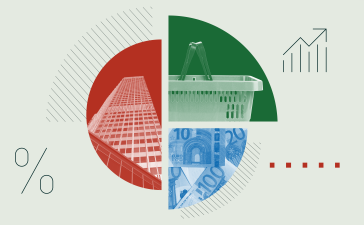The government is investing more than £55m in expanding facial recognition systems – including vans that will scan crowded high streets – as part of a renewed crackdown on shoplifting.
The scheme was announced alongside plans for tougher punishments for serial or abusive shoplifters in England and Wales, including being forced to wear a tag to ensure they do not revisit the scene of their crime, under a new standalone criminal offence of assaulting a retail worker.
The new law, under which perpetrators could be sent to prison for up to six months and receive unlimited fines, will be introduced via an amendment to the criminal justice bill that is working its way through parliament. The change could happen as early as the summer.
The government said it would invest £55.5m over the next four years. The plan includes £4m for mobile units that can be deployed on high streets using live facial recognition in crowded areas to identify people wanted by the police – including repeat shoplifters.
That investment follows the development of Project Pegasus under which some of the UK’s biggest retailers, including Marks & Spencer, Boots and Primark run their CCTV images through police databases using facial recognition technology.
Silkie Carlo, director of civil liberties at campaign group Big Brother Watch, said the government’s investment in facial recognition technology was “an abysmal waste of public money”.
“This Orwellian tech has no place in Britain,” she said, adding: “Criminals should be brought to justice, but papering over the cracks of broken policing with Orwellian tech is not the solution. It is completely absurd to inflict mass surveillance on the general public under the premise of fighting theft while police are failing to even turn up to 40% of violent shoplifting incidents or to properly investigate many more serious crimes.”
The £55.5m will come out of a £240m investment in police producticity over four years announced in the budget, while the £4m on more mobile units will be spent over the next year.
Backing for a specific retail worker assault offence marks a U-turn for the government, which previously blocked a Labour-backed amendment to the criminal justice bill that would have made the assault of a retail worker a specific criminal offence carrying a sentence of 12 months behind bars or a fine of up to £10,000.
Chris Philp, the policing minister, said at the time the move could lead to a problem of “equity between retail workers and other public-facing workers”.
However, retailers have demanded action against what they say is an epidemic of retail crime driven by organised by gangs targeting vulnerable stores. In October 90 retail leaders, including the bosses of Tesco, Sainsbury’s, Boots and WH Smith, wrote to the government demanding action on rising retail crime.
Last week the Co-op Group, which has been at the forefront of a campaign to create a specific crime for assault on a retail worker, said it had lost £70m from shoplifting after a 44% surge in retail crime last year to about 1,000 incidents a day.
Paul Gerrard, the campaigns and public affairs director of Co-op, said: “I’m glad that after six years of hard campaigning we have got to the point where this offence will become law.” He said that in Scotland, where a similar law is already in place, the arrest rate for retail crime was 60% compared with just 10% in England.
Sharon White, the outgoing chair of the John Lewis Partnership, which owns Waitrose supermarkets and department stores, said: “Retail crime is never victimless – it costs retailers over £1bn every year and can have a huge impact on the shop workers involved.
“We’ve long called for violence towards retail workers to be recognised as a standalone offence so welcome this announcement.”
Rishi Sunak said his government was backing a change in the law as “shoplifting and violence and abuse towards retail workers continues to rise”.
“I am sending a message to those criminals – whether they are serious organised criminal gangs, repeat offenders or opportunistic thieves – who think they can get away with stealing from these local businesses or abusing shop workers, enough is enough.”










